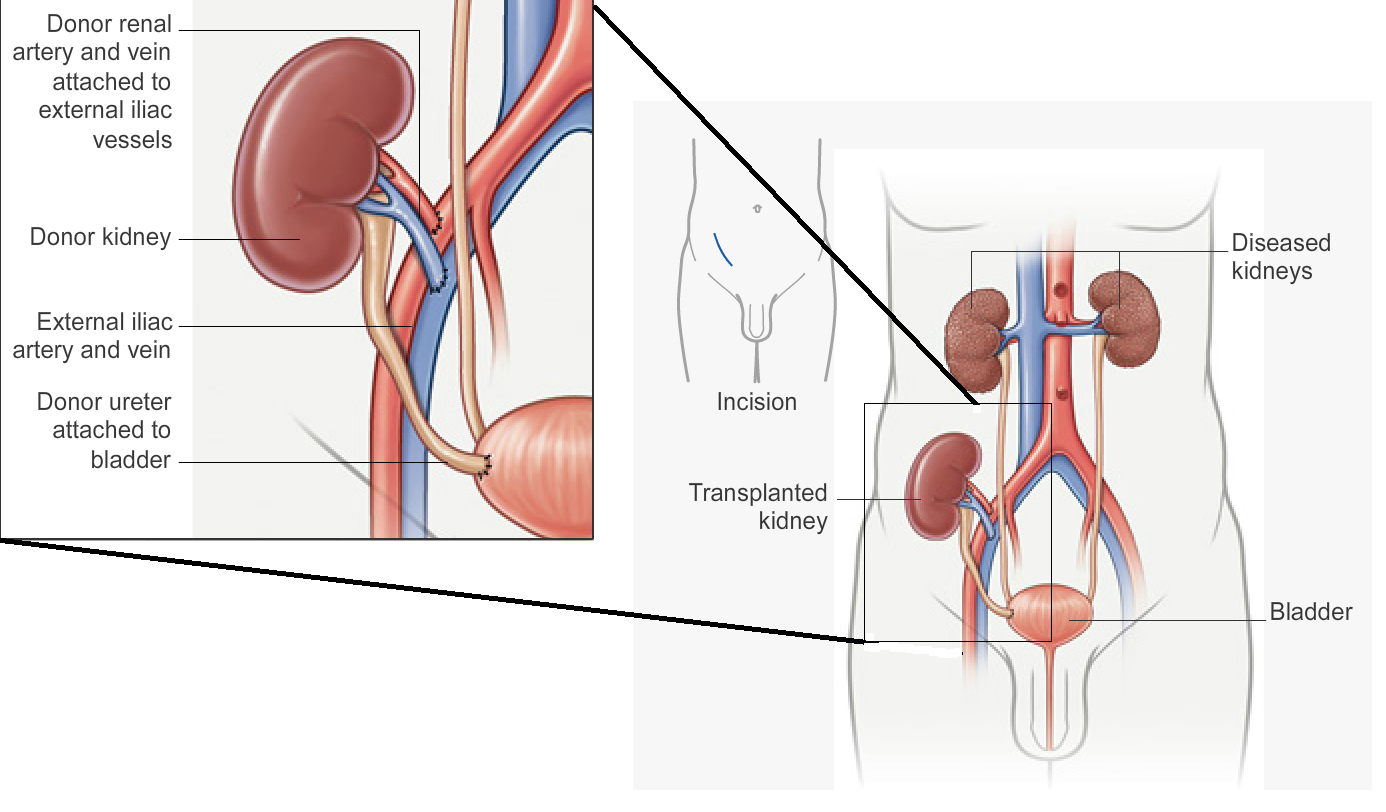Procedural understanding of Kidney Transplant

Role of Kidney
Kidneys are a bean-shaped organ present in either side of the spine behind the belly just the ribs, which is responsible for filtering the blood removing all waste substances from the body. The kidney is all responsible for regulating blood pressure, producing red blood cells and providing electrolyte balance.
Signs of Kidney Diseases
- Feeling lethargic all the time
- Having trouble sleeping
- Blood in the Urine
- Reduced Urine
- Swollen ankles and feet
- Foamy Urine
- Having trouble digesting
- Itchy and dry skin
- Chest Pain
- Unexplained breathing problems
- Persistent Nausea
- Persistent Muscle Cramping
What causes Kidney Damage?
Unhealthy lifestyle is the primary cause of Kidney Damage. Smokers and drinkers have an 80% more chance of getting kidney failure. Kidney stones and kidney cancer also damage the kidney to a severity that it demands a kidney transplant to function.
Why is kidney transplant required?
In most case kidney transplant is required for Kidney Failure – A condition in which the patient loses his/her ability to balance their fluids and remove waste from their body.
Kidney Transplant – is a surgical procedure performed to replace the damaged kidney with a donor’s healthy kidney. The new healthy kidney can come from an alive or deceased donor or a family member. People who choose to provide their kidney’s transplant can lead a healthy life with the one kidney, provided it remains healthy.
Kidney Transplant Procedure Step By Step
Step 1: Before proceeding with the surgery; first the doctors ensures to search for a kidney that can be donated by the donor or a family member.
Step 2: once the kidney is found, specific tests are run on the patient to match the new kidney with the body. If everything seems fine, the patient is given a surgery appointment.
Step 3: The patient is prepared for the surgery, before which his/her blood, mental stability, and concerned organs are closely monitored. An IV will be inserted in your arm with a few catheters in your wrist and arm for monitoring the heart rate of the patient.
Step 4: Now the patient will be put to sleep using general anesthesia. During the procedure, the patient is put on a ventilator allow him/her to breathe.
Step 5: A long incision is made on the lower abdomen, and the kidney is visually inspected by the doctor before replacing it with a new kidney.
Note: the left kidney of the donor is implanted on the right side of the patient, and the right kidney of the donor is placed on the patients left side. This allows the doctors to access the ureter and connect it to the bladder easily.
Step 6: Now the artery and veins of the donor’s kidneys are attached to the patient’s body, allowing the blood to flow in the vessels.
Step 7: Next the donor’s ureter is connected to the patient's bladder.
Step 8: Now that all the organs are connected to the new kidney, the incision is closed using surgical staples or stitches, and a sterile bandage is applied to the wound.
FAQ
Is Kidney Transplant safe?
Yes, a Kidney transplant is a safe procedure that has helped in several patients with kidney failure to come back to their healthy life. However, the complexities and the risk of the surgery might increase with age, and other factors like the patient might be suffering from other conditions that might prevent the patient to recover from the surgery.
How long will it take to recover from a kidney transplant surgery?
The patient might need 1 to 2 months to recover from the surgery altogether. The recovery can increase or decrease depending on the medical instruments used during the surgery.
Are there any risks of getting a kidney transplant?
Kidney transplant might cause the following complications in your body:
- Bleeding
- Infection
- Lack of function in the replace kidney
- Leakage or blockage of urine
- Blockage in the blood vessels of the new kidney.
Are there any conditions that might prevent me from getting a kidney transplant?
Not every patient case is suitable for a kidney transplant. The patient should avoid even considering kidney transplant in the following conditions:
- Recurring or current infection that isn’t getting treated effectively.
- Cancer that is spreading in the body
- A severe heart condition that makes the patient unstable for the surgery
- Acute conditions that can’t be treated for a kidney transplant.
Explore Medmonks.com to learn more about Kidney transplant procedure and the best hospitals to get it done.
Also Read: Symptoms of Kidney Disease in Women
Click here to know more about Documents Requirement for Renal Donor in India
Comments

By mahesh_fmim | 06.12.2018
Thank you for your valuable information. This post is very helpful. Every woman needs to know this information. Also Kindly visit @ https://bit.ly/2qn2k5p

By vijay | 07.08.2018
Natural infertility treatment especially made to increase healthful sperm formation and improves a man





